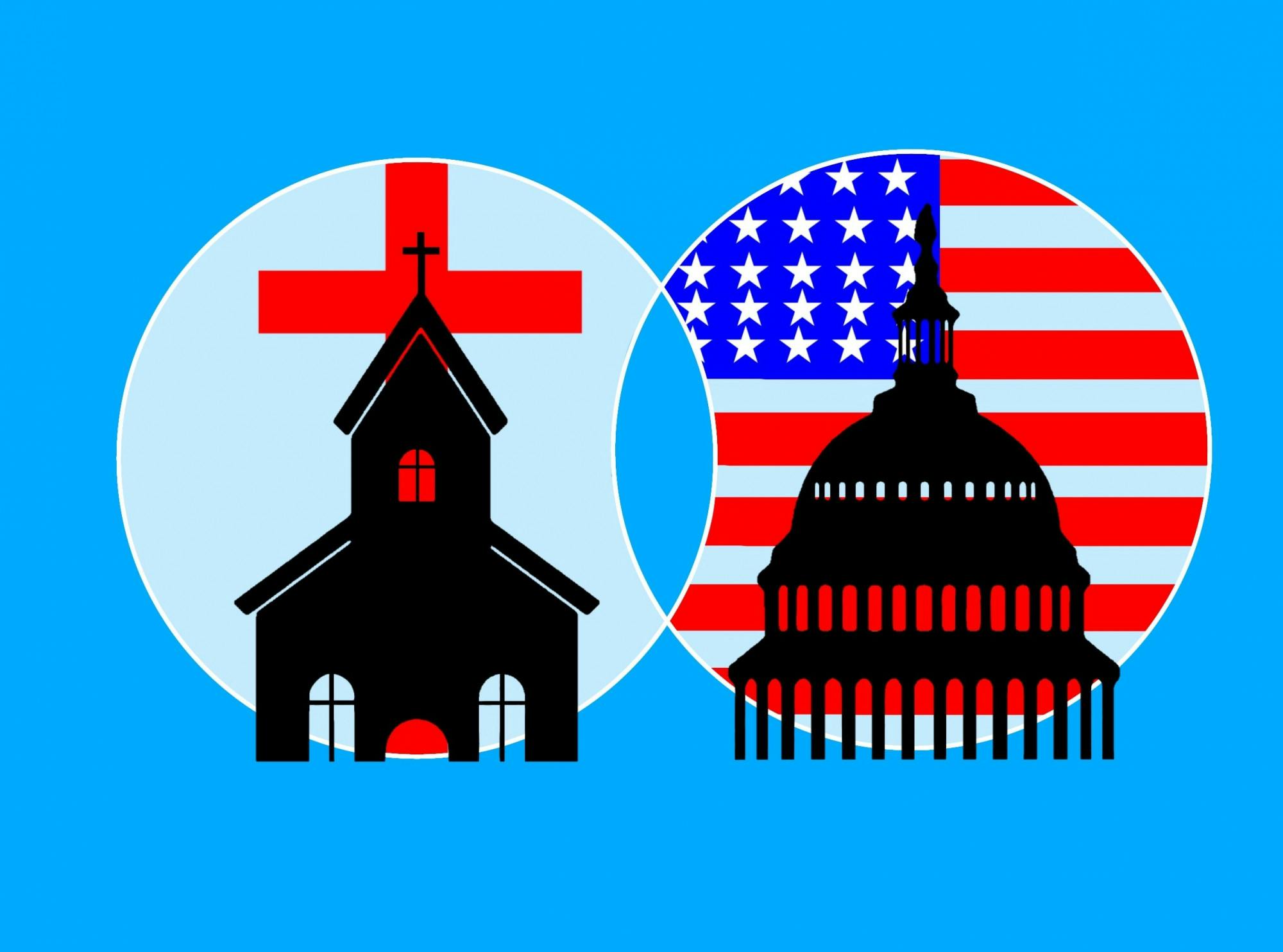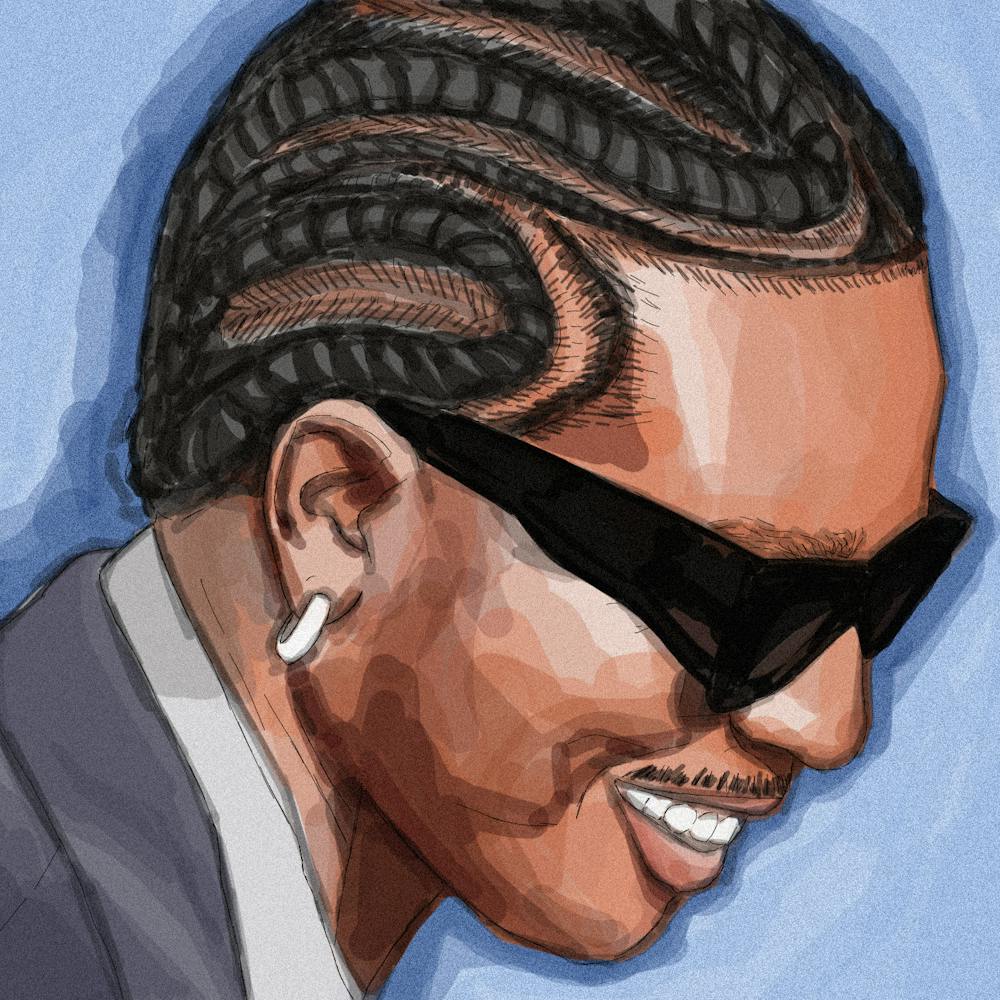The First Amendment set a precedent for the United States over 200 years ago encouraging the freedom of religion, establishing the separation of church and state. This line has been drawn and redrawn over American history. With influential court decisions in recent months, it seems like America is looking to reconfigure this separation once again.
Frank Ravitch, a professor of law at Michigan State as well as the Walter H. Stowers Chair of Law and Religion, recently spoke out for MSU in their Ask the Expert series on the concept of the separation of church and state. Talking to reporters all over the world on the topic, Ravitch wanted to explain how the Dobbs case, overturning Roe v. Wade, and other influential cases recently have been saturated with religious aspects.
“The courts behaved in a very unprincipled way," Ravitch said. "It's… obviously acknowledged what it was doing and what it was doing… was taking rights away for the first time in modern American history.”
Ravitch explained that before the precedent was set in the Constitution by our founding fathers, the history of the government promoting religion was loaded with dead bodies and discrimination: a horrific history of violence. However, as time continues on after the signing of the Constitution, we have seen this principle transforming.
“Separation itself is kind of a loaded term," Ravitch said. "Long before these cases, the court was eroding what people call the wall of separation that's been getting eroded since at least 2002, if not before that, but separation... is a principle… that government shouldn't be promoting religion.”
Ravitch said that there are three ways to view separation. The first was coined by Jefferson where separation protects the government from religion, allowing the government to stay secular. Another is the opposite which took over in the 1960s where religion is instead protected from the government, allowing for free religious expression. Modern takes have also arisen.
“There's also a third view of separation, which I've promoted a lot, which is that separation is a sensible way to maintain and support religious pluralism," Ravitch said. "America is an incredibly religiously diverse country. Even just within Christianity itself, there's thousands of sects.”
Ravitch also explained that this separation protects agnostics or those that do not practice any religion. However, he believes that with the court's new decisions arguments about religion may increase.
Ravitch said that the problems only began with the Dobbs case that led to the federal discontinuity of abortion access. He commented that the court did not accurately portray the actual rulings of Roe v. Wade as well as the history of the common law on abortion.
“I think Dobbs is intellectually depraved," Ravitch said. "I think it's unprincipled, but they do cite the relevant precedent. They misportray it and they misstate it, and that is wrong. I think that's an incorrect decision, legally and morally.”
However, the case that Ravitch really feels breaks the precedent of separation was the recent Kennedy v. Bremerton School District case in which a coach was reprimanded for praying on the sidelines after football games. The court ruled in favor of Kennedy, openly supporting the use of religious practices in public schools.
“The Kennedy case goes beyond to the point of intellectual dishonesty, where the court literally doesn't even cite relevant precedent that really goes against what it's saying," Ravitch said. "The court dramatically misportrayed to the point where the dissenting opinion actually serves to demonstrate what the facts really weren't.”
While Ravitch does not agree with either of these court proceedings, he is passionate that the Kennedy case has done just as much damage as the Dobbs.
“Kennedy got less attention because what we said was three days before when the court overturned Roe v. Wade," Ravitch said. "It's understandable that Kennedy didn't get the attention that that in a normally would have gotten, but Kennedy also overturned at least 30 and as much as 50 years of precedent.”
Ravitch explained that what the court did in June 2022 fundamentally changed the way we understand religious clauses of the United States Constitution.
Ravitch said that there are a few ways to resist these precedent changes such as using state constitutions to lower the risk of establishment changes, especially with abortion rights. However, with state funding, states must still fund religious entities if they fund any non-governmental entities, still mixing state politics with the churches. The barriers to resist precedent changes from federal levels are engrained in the money that states can use.
“Short of court packing, there's not much that can be done to undo these decisions," Ravitch said. "Certainly the Dobbs decision could be impacted by federal legislation. Unfortunately, right now with the filibuster… it's not likely to happen.”
The expansion of the Free Exercise Clause, limits the state's abilities and promotes the Court to make final decisions. While it's unclear that the court will continue to overturn more rulings such as school prayer decisions, Ravitch no longer puts anything beyond the current court after Justice Ginsberg passed away.
"I think the court's current jurisprudence is privileging dominant Christianity at the expense of Christian religious minorities, non-Christian, religious minorities, and people with no religion and I think that's what we're gonna continue to see because I think that's the impact of these decisions," Ravitch said.
Ravitch said that the court's new doctrines seem to be using free exercise to favor more powerful and dominant religions ironically. He explained that he's not sure if the court even realizes the impact of their decisions on religious minorities or agnostics, and that the justices may be utterly incapable of seeing their perspective.
Students at MSU are also feeling the weight of the precedent being reformed. Computer science senior Alexis Tochiki said she believes religious bias has no place in any laws.
“I think [the precedent] is actually really important, because that basically sets the foundation for America to grow, regardless of religious affiliation, and helps to allow for that freedom of religion, freedom of speech… It serves as one of the foundations for America," Tochiki said.
Support student media!
Please consider donating to The State News and help fund the future of journalism.
Tochiki believes that is the people's decision to elect officials that will hopefully stay away from merging church and state together.
"If you start incorporating a certain religion into your legal system…you're limiting what other people believe and basically invalidating what they know," Tochiki said.
Political science freshman Michelle Goldberg explains that she can see the bias immediately from looking at the Dobbs ruling.
“Christian law in the Bible says that it's anti-abortion, but in Jewish law, it actually says that abortion is necessary...so that's absolutely like a lack of separation," Goldberg said.
Goldberg also believes that the melding of the two has been more apparent after the Trump administration.
“Trump said, Christianity will have power when he was talking at a MAGA convention," Goldberg said. "I think a lot of his ideology is Christian based and I think a lot of people think it's more acceptable to kind of not have that separation now.”
While looking into the past for motives to how the court is acting, Goldberg is also concerned looking into the future of their decisions that could possibly involve contraception use and LGBT marriage rights, which could be affected by religious motives.
“It affects marginalized people," Goldberg said. "It affects minorities, it affects people that aren't necessarily Christian or Catholic, and also, the separation of church and state. It's what this country was built on the First Amendment. So I feel like if you were to override that, and make it so there is no separation, a lot of other things could change.”
With the separation of church and state being so engrained in society, many are afraid of the dangers that come with new court proceedings looking to further divide those by what they believe.
“I think [these rulings] are dangerous because they further ignite the culture wars,” Ravitch said.
Discussion
Share and discuss “MSU professor Frank Ravitch analyzes the separation of church and state ” on social media.







